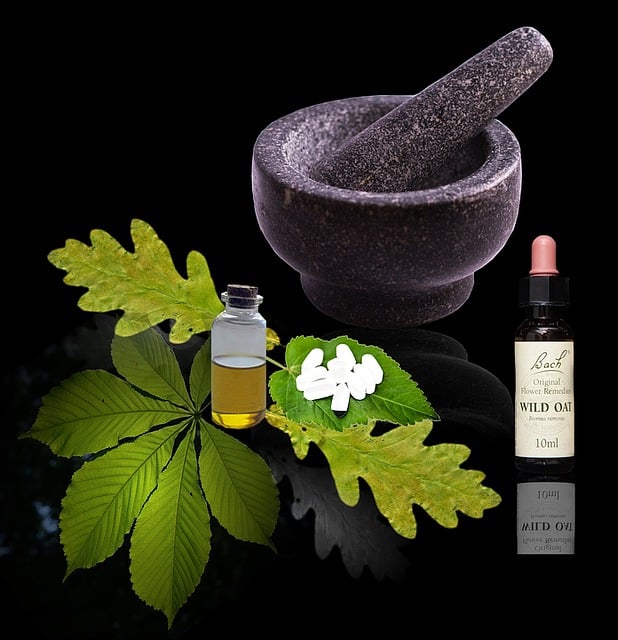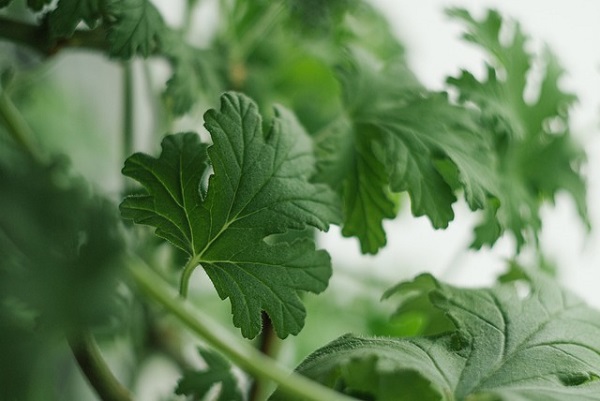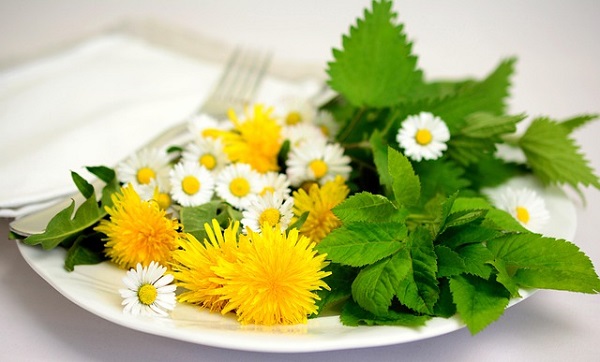A Path to Wellness/2025
Natural Medicines the pursuit of Healthy Lifestyle and longevity has always been a central theme in human history. For centuries, people around the world have turned to nature to seek remedies that promise vitality, disease prevention, and an overall sense of well-being. In today’s modern world, with a focus on synthetic drugs and advanced medical technologies, the importance of natural medicines and remedies has often been overshadowed. However, as the search for holistic, effective, and sustainable approaches to health gains momentum, natural medicine has reemerged as a valuable asset in the quest for lifelong wellness.

everyday health, we explore some of the most powerful and commonly used natural medicines that can promote a healthier lifestyle and potentially extend longevity.
1. Herbal Medicine: Natural Medicines Pharmacy
One of the earliest types of medicine is herbal medicine. Across cultures, from the roots of Chinese traditional medicine to the wisdom of indigenous communities in the Americas, plants have been used to treat a variety of ailments. Many herbs have proven efficacy in promoting health, boosting immunity, and preventing diseases.
A. Ashwagandha (Withania somnifera)Natural Medicines
Being an adaptogen, ashwagandha aids in the body’s ability to cope with stress. Chronic stress can have a significant impact on overall health, leading to issues like hypertension, anxiety, and a weakened immune system. By helping regulate the body’s stress response, ashwagandha plays a crucial role in maintaining mental and physical well-being.
Health Benefits:
- Reduces anxiety and stress
- Supports thyroid function
- Enhances physical endurance
- Strengthens the immune system
B. Turmeric (Curcuma longa)Natural Medicines
Turmeric contains curcumin, a compound known for its potent anti-inflammatory and antioxidant properties. Chronic inflammation is linked to various diseases, including heart disease, arthritis, and even cancer. Regular consumption of turmeric can reduce inflammation and oxidative stress, promoting overall health.
Health Benefits:
- Anti-inflammatory effects
- Improves joint health
- Boosts brain function
- Supports heart health
C. Echinacea (Echinacea purpurea)
Echinacea is a well-known herb that is often used to strengthen the immune system, particularly during cold and flu season. Studies have shown that echinacea can reduce the severity and duration of respiratory infections by boosting the body’s natural defenses.
Health Benefits:
- Enhances immune system function
- Reduces symptoms of the common cold
- Fights off infections
2. Essential Oils: Aromatherapy for Healing
Essential oils are highly concentrated plant extracts that can be used to treat various physical and mental health concerns. They are commonly used in aromatherapy, where their scents are inhaled, or they can be applied topically when diluted with a carrier oil. Many essential oils possess antimicrobial, anti-inflammatory, and relaxing properties, making them a valuable tool for holistic health.
A. Lavender Oil
Lavender essential oil is widely known for its calming and relaxing properties. It has been used for centuries to treat anxiety, promote better sleep, and ease pain. Its soothing effects on the nervous system make it an excellent choice for maintaining mental health.
Health Benefits:
- Promotes relaxation and reduces anxiety
- Improves sleep quality
- Alleviates headaches and migraines
- Supports skin health
B. Peppermint Oil
Peppermint oil is an invigorating oil that has a cooling effect on the body. It is often used to soothe digestive issues, relieve headaches, and reduce muscle pain. It is also helpful for respiratory issues like colds and allergies, as it can open up airways.
Health Benefits:
- Eases digestive discomfort
- Relieves headaches
- Reduces muscle and joint pain
- Supports respiratory health
C. Tea Tree Oil
Tea tree oil is a powerful natural antimicrobial agent. It is commonly used to treat skin conditions like acne and fungal infections due to its antibacterial and antifungal properties. It can also help with respiratory conditions and boost immunity.
Health Benefits:
- Treats acne and other skin infections
- Acts as an antifungal
- Supports immune health
- Reduces inflammation

3. Superfoods: Nutritional Powerhouses for Longevity
Superfoods are nutrient-dense foods that provide a high amount of vitamins, minerals, and antioxidants relative to their calorie content. Regularly incorporating superfoods into your diet can help optimize your health, protect against chronic diseases, and enhance longevity.
A. Blueberries
Blueberries are often considered one of the best antioxidant-rich foods. These small, dark berries are packed with anthocyanins, compounds that help protect the body from oxidative stress and cellular damage. They also support brain health and improve cognitive function.
Health Benefits:
- High in antioxidants
- Improves cognitive function
- Protects against heart disease
- Supports digestive health
B. Chia Seeds
Natural Medicines Chia seeds are a great source of protein, fiber, and omega-3 fatty acids. They are often considered a superfood due to their role in supporting heart health, reducing inflammation, and aiding in weight management. Chia seeds also promote gut health by supporting regular bowel movements.
Health Benefits:
- Rich in omega-3 fatty acids
- Reduces inflammation
- Supports heart health
- Improves digestive function
C. Spirulina
Natural Medicines Spirulina is a blue-green algae that is highly nutrient-dense, packed with protein, vitamins, and minerals like iron and magnesium. It is often used as a natural supplement to boost energy levels, detoxify the body, and support immune health.
Health Benefits:
- Boosts energy and endurance
- Detoxifies the body
- Strengthens the immune system
- Improves digestive health
4. Traditional Foods and Herbs for Longevity
Traditional remedies, some of which have been used for thousands of years, can also contribute to a healthy and long life. These remedies focus on boosting longevity and improving the quality of life.
A. Ginseng (Panax ginseng)
Natural Medicines Ginseng is a powerful adaptogen that has been used in traditional Chinese medicine for centuries. It is particularly known for its ability to boost energy levels, enhance cognitive function, and improve overall vitality. Regular use of ginseng may promote longevity by helping to balance the body’s stress response and supporting healthy immune function.
Health Benefits:
- Increases energy and stamina
- Enhances cognitive function
- Strengthens the immune system
- Reduces stress
B. Moringa (Moringa oleifera)
Known as the “wonder tree,” moringa is a plant that is rich in vital nutrients. The moringa tree’s leaves are a great source of vitamins, minerals, and antioxidants that can help lower inflammation and combat oxidative stress.Moringa is also known for its ability to detoxify the body and promote heart health.
Health Benefits:
- Rich in antioxidants
- Supports heart health
- Detoxifies the body
- Reduces inflammation
C. Aloe Vera
Aloe vera is well-known for its ability to soothe burns and skin irritations, but its benefits go far beyond just topical use. Consuming aloe vera juice can help improve digestion, boost immune health, and support detoxification.
Health Benefits:
- Promotes healthy digestion
- Supports skin health
- Boosts immunity
- Detoxifies the body
5. Dietary Supplements: Natural Medicines Ways to Support Health
In addition to whole foods and herbal remedies, certain dietary supplements can also play a role in maintaining good health over time. The purpose of these supplements is to promote general health and address nutritional shortages..
A. Omega-3 Fatty Acids
Omega-3 fatty acids, particularly those found in fish oil, are essential for brain health, heart health, and reducing inflammation.Frequent omega-3 fatty acid intake can help reduce the risk of chronic conditions like heart disease, arthritis, and cognitive decline.
Health Benefits:
- Supports brain health
- Reduces inflammation
- Promotes heart health
- Improves mood
B. Probiotics
A healthy gut microbiome is maintained with the use of probiotics, which are good bacteria. A healthy gut is essential for immune function, digestion, and even mental health. Supplementing with probiotics can enhance digestion, improve immunity, and help prevent gut-related issues like bloating, constipation, and irritable bowel syndrome.
Health Benefits:
- Improves digestion
- Supports immune function
- Reduces inflammation in the gut
- Enhances mental health

6. Lifestyle Considerations for Long-Term Health
While Natural Medicines and remedies can certainly help support health, they work best when combined with healthy lifestyle choices. Regular exercise, a balanced diet, sufficient sleep, and stress management practices all contribute to a longer, healthier life.
A. Regular Physical Activity
Engaging in regular physical activity is essential for maintaining heart health, muscle strength, bone density, and overall well-being. Exercise can also enhance mental clarity and reduce the risk of chronic diseases like diabetes and hypertension.
B. Mindful Eating
Consuming a diet high in whole grains, fruits, vegetables, and healthy fats gives the body the resources it needs to perform at its best. Mindful eating practices, such as portion control and focusing on food quality, can help prevent obesity and support metabolic health.
C. Stress Management-Natural Medicines
Both mental and physical health can suffer greatly from ongoing stress. Practicing stress management techniques such as meditation, deep breathing exercises, and yoga can help reduce stress levels and promote overall wellness.
Conclusion:
Natural Medicines, including herbs, essential oils, superfoods, and traditional remedies, have been used for centuries to promote health and longevity. These Natural Medicines offer a holistic approach to wellness, addressing both physical and mental health. When combined with healthy lifestyle choices, they can provide a powerful foundation for a long, vibrant life. While Natural Medicines are not a replacement for conventional medicine, they can serve as valuable tools in maintaining optimal health throughout life. everydayhealth group By embracing nature’s gifts, we can take proactive steps to support our bodies, enhance our well-being, and potentially enjoy a longer, healthier life.
FAQ:
1. What are natural medicines, and how do they differ from synthetic medications?
Answer:Natural medicines are substances derived from plants, animals, or minerals that have therapeutic properties. They have been used for centuries in traditional healing practices around the world. Unlike synthetic medications, which are chemically manufactured, natural medicines often contain a variety of active compounds that work together in the body. Natural medicines are considered more holistic, aiming to restore balance in the body, whereas synthetic medications are usually focused on targeting specific symptoms or conditions.
2. What are some common examples of natural medicines, and what conditions do they treat?
Answer:Some common natural medicines include:
Echinacea: Used to boost the immune system and treat colds and respiratory infections.
Ginseng: Known for its ability to improve energy, reduce stress, and enhance cognitive function.
Turmeric: Contains curcumin, an anti-inflammatory compound, often used for joint pain, arthritis, and digestive issues.
Lavender: Used for stress relief, anxiety, and promoting sleep.
These remedies are often considered more natural alternatives to pharmaceuticals for managing mild conditions.
3. Are natural medicines safe to use, and are there any risks involved?
Answer:While natural medicines are generally considered safer than synthetic drugs, they are not free of risks. Some natural medicines can interact with prescription medications, cause allergic reactions, or have side effects when taken in large amounts. For example, St. John’s Wort can interact with antidepressants and reduce their effectiveness. It’s important to consult a healthcare provider before using natural medicines, especially if you are pregnant, nursing, or have pre-existing health conditions.
4. How are natural medicines typically prepared for use?
Answer:Natural medicines are prepared in several forms depending on the plant, animal, or mineral involved. Common preparation methods include:
Teas: Made by steeping dried herbs in hot water.
Tinctures: Concentrated liquid extracts made by soaking herbs in alcohol or vinegar.
Capsules/Pills: Ground herbs or extracts encased in a pill form.
Oils: Extracted essential oils used for topical or aromatic applications. The method of preparation can affect the potency and bioavailability of the active compounds in the medicine.
